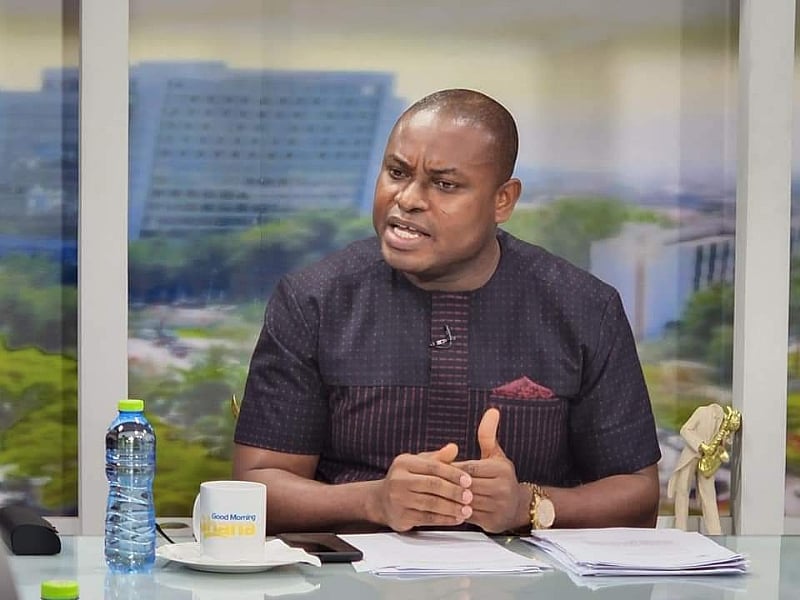The New Patriotic Party (NPP) has voiced its profound dissatisfaction with the government’s handling of the arrival of two foreign aircraft in Ghana, characterizing the official response as vague, unsatisfactory, and ultimately fueling public suspicion rather than allaying concerns. The aircraft in question, a Cavok Air Antonov An-12B and an AirMed Hawker 800XP, both originating from Gran Canaria, landed at Kotoka International Airport on February 19 and March 20, 2025, respectively. The NPP contends that the government has failed to provide a credible explanation for their presence, raising concerns about potential illicit activities. The party’s statement criticizes the Minister of State Communications, Felix Kwakye Ofosu, for offering a response deemed “scanty and primarily defensive,” further exacerbating public distrust. The NPP’s demand for transparency centers on a comprehensive account of the aircraft’s purpose, cargo manifests, and the government’s involvement in their operations within Ghana.
The NPP’s concerns extend beyond the immediate circumstances surrounding the aircraft, encompassing broader anxieties about the government’s commitment to combating drug trafficking and money laundering. The party highlights two significant drug seizures – a $350 million cocaine bust in Cape Coast and a $150 million seizure in Sekondi – demanding an update on the investigations. The Sekondi case is particularly sensitive, with allegations linking the seized cocaine to a member of the ruling National Democratic Congress (NDC). The NPP accuses the government of deliberate silence on these high-profile cases, arguing that this lack of transparency undermines public trust and raises suspicions of political interference. The party’s statement, signed by Director of Communications Richard Ahiagbah, underscores the potential damage to Ghana’s international reputation if the government continues to downplay the seriousness of these issues.
The NPP’s criticisms reflect a broader pattern of scrutiny directed at the government’s handling of sensitive security matters. The party’s demand for detailed information about the foreign aircraft goes beyond mere curiosity, reflecting a concern about potential breaches of national security and the possibility of illicit activities being facilitated under the government’s watch. The vague and defensive nature of the official response has only amplified these concerns, creating an impression of obfuscation and raising questions about the government’s willingness to be fully transparent with the public. The NPP’s insistence on updates regarding the drug trafficking cases further highlights this perceived lack of transparency, especially given the potential political ramifications of the Sekondi case involving an alleged NDC member.
The NPP’s focus on the potential damage to Ghana’s international reputation underscores the gravity of the situation. Drug trafficking and money laundering are not merely domestic concerns; they have international implications, affecting Ghana’s standing in the global community and potentially impacting its relationships with other nations. By linking the government’s perceived inaction to potential reputational damage, the NPP is attempting to elevate the issue beyond domestic politics and frame it as a matter of national importance. This strategy aims to pressure the government into taking more decisive action and demonstrating a commitment to combating these illicit activities. The party’s call for transparency is not simply a matter of political point-scoring but a fundamental requirement for maintaining public trust and upholding the rule of law.
The government’s response to the NPP’s accusations will be crucial in determining the trajectory of this issue. A continued lack of transparency and a failure to provide satisfactory explanations will likely fuel further speculation and deepen public distrust. Conversely, a proactive approach involving the release of detailed information about the aircraft and updates on the drug trafficking investigations could help to restore confidence and demonstrate the government’s commitment to addressing these concerns. The government’s handling of this situation will have implications beyond the immediate controversy, impacting public perception of its competence and integrity in dealing with sensitive security and criminal justice matters.
Ultimately, the NPP’s accusations and demands for transparency represent a challenge to the government’s authority and credibility. The party’s strategy of linking these incidents to broader concerns about drug trafficking, money laundering, and potential damage to Ghana’s international reputation aims to raise the stakes and pressure the government into taking decisive action. The government’s response will be a crucial test of its commitment to transparency and accountability, and will have significant implications for the political landscape in the lead-up to future elections. The public’s perception of how the government handles this situation will likely play a significant role in shaping public opinion and influencing future political outcomes.


